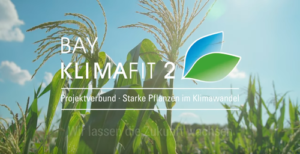Projects
Cassava Source-Sink (CASS) Project
Our mission
We aim to develop robust and yield-improved cassava varieties that will be provided to African smallholder farmers in order to improve food security in Sub-Saharan Africa.
Problem statement
According to the Food and Agriculture Organization of the United Nations, approx. 220 million people suffer from chronic hunger in Sub-Saharan Africa. The tuberous roots of cassava (Manihot esculenta) represent the main source of carbohydrates, making this tropical bushy shrub essential for food security of the African continent.
Cassava is almost exclusively grown by smallholder farmers, who own less than two acers of farmland and have very limited access to the tools of modern agriculture, like heavy farming machinery, pest control or fertilizer. Yield increases therefore have to come from plants that are inherently more productive, even under conditions of low-input agriculture.
Contact – Dr. Wolfgang Zierer
PhotoBoost Project: Research into the photosynthesis performance in potatoes and rice
Background
There is an increased demand for food. The United Nations estimates that food production needs to double by 2050 to meet the needs of a growing global population. At the same time there is increased pressure on land and resources from things like the expansion of urban areas and climate change. This points to an underlying problem – there is a gap between agricultural productivity and the global market demand for food and bioenergy crops. The EU-funded project PhotoBoost will tackle this problem by developing strategies to boost the productivity and performance of essential crops.
Contact – Prof. Dr. Uwe Sonnewald
ADAPT project: Developing heat- and drought-stress tolerant potatoes
Developing heat- and drought-stress tolerant potatoes
our mission: “developing new strategies to make potatoes fit for the challenging growth conditions of the future”
ADAPT will determine the molecular and phenotypical responses of potatoes to combined environmental stress conditions such as heat, drought and flooding, which are becoming increasingly important for potato yield under the challenging growth conditions of the future due to climate change.
Arising from a mechanistic understanding, we aim to identify new breeding targets and matching potato varieties to specific environmental conditions.
Knowledge from our research will directly reach the most relevant stakeholders and end-users feeding into breeding programmes and guiding technology development for improved crop management strategies.
Contact – Dr. Sophia Sonnewald
BayKlimaFit 2 – “Strong plants mitigating the impact of climate change”
Climate change is one of the biggest challenges for mankind – a global problem with regional implications. Successful and sustainable climate policies are based on scientific knowledge derived from cutting edge and application-oriented research. With extensive measures for climate protection and climate adaptation the State of Bavaria aims to counteract climate change in the affected regions.
From 2016 to 2019 several projects addressed research topics relevant for adapting Bavarian crops to climate change as part of the BayKlimaFit 1 project network. Improving our knowledge how plants can tolerate changing environmental conditions was the main objective. Based on these achievements the new project network BayKlimaFit 2 will advance our knowledge and transfer it into practice improving crops for coming generations.
The project network “BayKlimaFit 2 – Strong plants mitigating the impact of climate change” is conducting research in 10 individual projects on the key topics:
- High quality and climate resilient plants
- Healthy plants under climate change
- Resource efficiency despite climate stress
Contact – Prof. Dr. Uwe Sonnewald & Dr. Sophia Sonnewald




